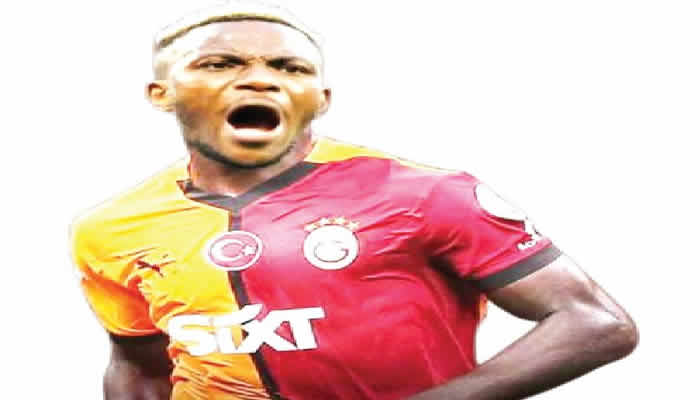The recent performance of the Super Eagles, Nigeria’s national football team, has raised significant concerns, particularly with Victor Osimhen’s absence. The team struggled to produce a compelling attack during their match against Libya on Friday, needing a late goal to secure a narrow 1-0 victory in their Africa Cup of Nations qualifying campaign. While other strikers like Victor Boniface and Taiwo Awoniyi have been performing well at their European clubs, they failed to leave their mark in the national colors, highlighting the gap left by Osimhen. The pressure was on the team to deliver, but it was actually midfielder Fisayo Dele-Bashiru who salvaged the night, scoring just three minutes before the match ended.
In the lead-up to the match, interim coach Augustine Eguavoen expressed confidence in Boniface, Awoniyi, and Kelechi Iheanacho, asserting that they could fill the void left by Osimhen. He emphasized the importance of securing points early in the group stage given the fierce competition with other teams, especially after Benin Republic’s impressive win over Rwanda. Despite the assurance from the coach, the strikers brought nothing but frustration during the match, and the failure to finish crucial opportunities became evident. Boniface, who had shown promise with Bayer Leverkusen, extended his goal drought to eight games for the national team, failing to register even a single shot on target during the match.
The game against Libya showcased a defensive approach from the opponents, who were more than willing to frustrate the Nigerian side. The Mediterranean Knights employed delaying tactics throughout the match, with their goalkeeper receiving a booking for time-wasting in the second half. Even though the Super Eagles dominated possession, they struggled to penetrate the Libyan defense, which held firm against the Nigerian attack. This lack of clinical finishing was underlined by Ademola Lookman’s disallowed goal, which could have given Nigeria an earlier lead, igniting protests from Nigerian supporters over the controversial offside call.
The eventual goal by Dele-Bashiru was born out of a defensive error from Libya and underscored the importance of having players ready to capitalize on such opportunities. His timely intervention, which came late in the match, brought a sense of relief to the Super Eagles and their supporters. However, the frustration with the overall performance of the strikers did not go unnoticed among fans and analysts alike, with many taking to social media to express their disappointment. Some fans were vocal about the need for Boniface to be replaced in the lineup, emphasizing the necessity for clinical finishing in future matches.
Despite securing three points from this challenging encounter, serious questions linger about the Super Eagles’ attacking capabilities without their star striker. Eguavoen faces a pressing need to address the underlying issues that hinder the team’s performance in front of goal. The pressure mounts as Nigeria prepares for the return leg against Libya in Benghazi, where they will need a more coherent and effective attacking plan to maintain their position in the qualifying group. The players’ inability to convert chances poses a risk to their ambitions for early qualification for the 2025 Africa Cup of Nations in Morocco.
In conclusion, while Nigeria’s win over Libya is a positive on paper, the lack of attacking potency highlighted by Osimhen’s absence raises urgent concerns for the Super Eagles. The future of the team’s attacking strategy relies on overcoming the current struggles with the strikers, particularly under pressure situations. With upcoming fixtures and the quality of teams in their qualifying group, the Super Eagles will need to cultivate a more competitive edge and capitalize on opportunities to ensure their path to AFCON success and revitalized team performance ahead.














